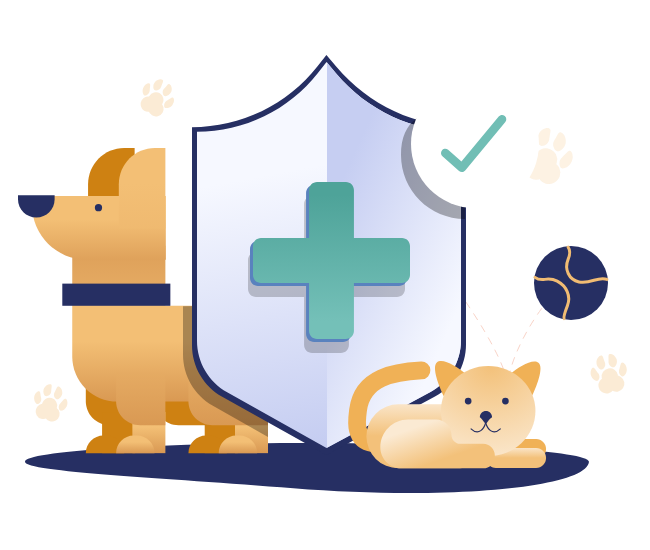If I asked you whether or not your chihuahua is an asset, you would most likely say no. By law, they are technically considered assets. But in the traditional sense, pets like dogs and cats, are huge liabilities. For starters, they’ll run you thousands of dollars; some designer dogs even reach the tens of thousands. Insurance, food, grooming – all of that adds up if you plan to not just own, but properly care for your pet. A MarketWatch survey indicated that the AVERAGE monthly cost of dog ownership is about $170. This doesn’t even take into account the other costs associated with ownership.
Cost Adds Up
Take property damage as an example: last month, my mini goldendoodle chewed up my couch, costing my family hundreds to repair. Most insurance plans do NOT cover the property damage when it is on your own property. Homeowners and renters insurance may cover some of the damage when it is on someone else’s property, but they actually deem some breeds, like rottweilers, as “high risk.” If you want to own a pet, readjusting your existing insurance plans to cover more of the added risk may be in your best interest.

Source: Forbes
The largest risk with these animals – especially for ones with an ‘alpha’ personality, as pet trainers like to call it – is the risk of them biting or injuring someone else. It may result in medical expenses and, more significantly, large legal costs. Again, only some insurance policies cover this, so be aware.
If you own or rent a home, you can be certain that your pet will lower property value or create arguments with the landowner. Cats love to scratch just about everything, including freshly-painted walls. Consider training them with a scratching pad. That too, the urine stains on your carpet or the giant hole dug in your backyard will also be expensive to fix.
Depending on how high the risk of financial loss is with your specific pet, it will usually reduce long-term costs to invest in specialized training, which again can cost you anywhere from $400 to $4,000 dollars. Like attending college, the idea is to invest a large sum of money with the hopes that it will save money in the long run. The key takeaway here is that the initial expenses of dog ownership are usually high, but they gradually decrease as time passes.
Many people think about dog and cat ownership as a one-time purchase to save up for. The reality is that it creates variable costs – ones that prospective owners must be aware of – for years down the line. Is a pet turtle more economical? Perhaps. But if we thought of everything that loses money as a bad purchase, we’d all live completely boring, robotic lives. Some intangible benefits – like love and companionship – cannot be converted to dollars.
How to Turn Your Pet Into an Income-Producing Asset
For starters, if you’ve made an educated purchase, your pet already is an emotional asset, meaning its value is non-monetary. But if you’re seriously interested in creating financial value, the best way to do so is social media. This is not as difficult as people make it out to be – a small following of about 50,000, which may take 3-8 months of consistent posting to acquire, can be enough to cover the variable expenses of the dog. Pet influencer networks, like Pupfluence, can get you brand deal opportunities with small companies. Even your local pet store may be willing to provide free services in exchange for promotion once your pet has a large enough social media presence.
Pet modeling, which requires significant training that you’re already likely to invest in just by owning the pet, is another option. The owners of these pets get paid an average of $50 per hour in the US. It’s quite difficult to land a position like this, though, so building an online presence and acquiring brand deals may be a valuable prerequisite to break into the modeling world.
Dog shows, on the other hand, have become more about prestige than cash prizes. Fews shows, aside from the AKC National Championship, which is extremely difficult to win, offer prize money. Don’t pursue this path unless it's an actual hobby.
If you have an extra bit of time on your hands, you can always use your skills to help out new pet owners. Pet grooming, training, sitting, and walking are all side hustles that you gain the ability to do just by virtue of owning a pet. Regardless, each of these options requires significant additional investments of your own time, which may not be worth it in your eyes.
Market Growth
Quick sidenote. As pet ownership grows rapidly each year, so too does the market for pet products. After Blackstone bought Rover, an online platform connecting owners with sitters, private equity investment in the sector increased by 659% in 2023. Zoetis completed its IPO in 2013, Trupanion in 2014, Chewy in 2019, and more than a dozen others in recent years. With more and more emphasis being placed on pet health by consumers, health-tech has become pervasive in the sector. Health services like Gallant and PrettyLitter have attracted nearly a billion dollars in early-round funding. The hype of AI allowed products like PetCube, a camera, and Petnet, a smart feeder, to pull money from VCs like Cabra. Some funds, including Leap Ventures and 9 Square Ventures, are almost exclusively focused on the pet tech market. This growth, influenced by changing consumer preferences and the increased prevalence of technology, should be an important consideration for individual investors.
Cover Image Source: Customers spend leisure time at dog and cat cafes in Shanghai. [Photo / CHINA DAILY], Xinhua, https://www.globalpeople.com.cn/waphtml/channel/149/121464.html
